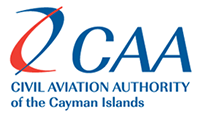Meteorological Services
The objective of an aviation meteorological service is to contribute towards the safety, regularity and efficiency of international air navigation by the provision of timely and accurate weather information. It will be apparent that aircrew must be able to access accurate weather information when planning their flight and given the changing nature of the earth’s weather patterns this information will need to be updated as necessary to ensure that a planned flight can be completed safely. This is achieved by providing necessary meteorological information to aircraft operators, flight crew, air traffic services units and airport management through network of international communication systems which ensures close liaison between those supplying meteorological information and those using it.
ICAO Responsibilities
Regulatory Requirements
Meteorological Service Products
The Meteorological Service generates a variety of products to assist aeronautical users to carry out their functions.
